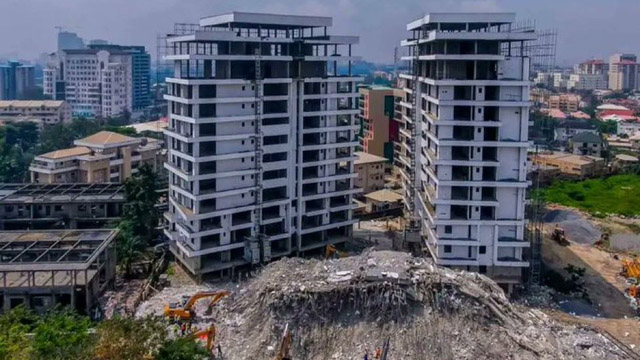A Scholar, Dr. Adewunmi Badiora, has said that poor planning and design of buildings in Lagos are affecting the safety and security of residents.
Presenting a paper at the Priority Complex Problems (PCPs) workshop of the African Cities Research Consortium (ACRC) on Lagos: Safety and security domain, Badiora stated that the growth of Lagos has been rapid and contributes to the unplanned growth of low-income informal settlements, which overwhelms the capacity of city authorities to provide basic services.
He noted that while there are new safety policies and infrastructure in the city, respondents were of the view that the current state of security has not changed significantly in the past five years.
According to him, the main structural drivers of insecurity include youth unemployment, poverty, and worsen socio-economic and living conditions; Lagos borders’ porosity – Illegal migrants and high rate of out-of-school youth/children; desperate political affairs, corruption and state lack of capacity to deal with complex security issues and Ethnicity issues/agitations, religious bigotry, and rapid population growth.
Badiora disclosed that there is general services, personnel, including safety and security, and infrastructural deficit in Lagos. “There are not less than 5 million residents of Lagos without access to good safety and security infrastructures/services.”
Dr. Basirat Oyalowo, who spoke on the housing domain at the workshop, observed that administration after administration often engaged in building legacy housing projects but none is comparable with that of late Lateef Jakande in numbers and being pro-poor.
Oyalowo noted that getting permits around the housing sector is usually encumbered with bureaucracy resulting in many developers preferring to build with permits, waiting to pay the fines for building without permits.
She noted that the bureaucratic process of building permits is not business-friendly for developers, disclosing that though the state government said that all permits for housing buildings should be completed in six months, it often takes over two years in most cases to process permits.
Weighing in during the housing session, Professor Taibat Lawanson, stated that the entire permit process should be looked at because it is quite problematic. She added that there should be systematic reforms around institutions of government because corruption is not the only issue around licensing in the sector.
The third section on Neighbourhood District and Economic Development was presented by Dr. Olasunmbo Olusanya and Gbemiga Faniran, who spoke about Household Micro Enterprises (HMEs) sector. They stated that because a considerable portion of residents lives in low-income neighbourhoods and slums, there are a huge number of persons operating businesses that could be categorized as HMEs.
They added that while the government wants their businesses formalized, the players within the HMEs are very apprehensive about moving in that direction.
They also noted that the sector is burdened with multiple taxes with many of the taxes not documented or receipted. They observed that groups within the HMEs with political patronage seem to wield undue influence within the sector.
Thereafter Professor Abiodun Folawewo discussed the Structural transformation domain stating that infrastructure, the presence of ports, and the population are the major drivers of economic and business activities in Lagos.
He identified multiple taxations, hostile business environments, poor governance, and bureaucracy as some of the constraints to structural transformation.

































